Curricular and Teaching Innovation Grants
Proposals are invited from tenured and tenure-track faculty in the Irving K. Barber Faculty of Arts and Social Sciences interested in enhancing the classroom experience by adopting new technologies or other pedagogical approaches that challenge and encourage students.
Deadline for 2025 Curricular and Teaching Innovation Grant is February 7, 2025.
Questions: ikbawardsandevents.ubco@ubc.ca
2024 Recipients
Ben Ramirez, Corinna Netherton, Evan Habkirk, Shawn Wilson
 Ben Ramirez Ben RamirezAssistant Professor of Teaching Indigenous Studies |
 Corinna Netherton Corinna NethertonLecturer Indigenous Studies |
 Evan Habkirk Evan HabkirkLecturer Indigenous Studies |
 Shawn Wilson Shawn WilsonAssociate Professor Indigenous Studies |
(group recipient)
Since the Faculty of Arts and Social Science’s Indigenous Course Requirement (ICR) was implemented in 2021 as part of the breadth requirement for all undergraduate students, over 2,000 students have passed through Indigenous Studies 100: Introduction to Decolonization (INDG 100) across 18 sections. Following three years of experiential learning by course, instructors and teaching assistants, emerging needs and priorities have been identified that require a redesign of the course’s curriculum and pedagogy to address course capacity, address students’ needs, and promote the instructional team’s wellbeing to reduce exhaustion when teaching ICRs.
Expanding its reach throughout UBCO’s programs, INDG 100 provides a formative educational experience for students. This project focuses on a multi-phase innovative revision that (1) supports faculty capacity and sustainability for course growth, (2) builds consistency across course sections, (3) decreases undue burden for Indigenous voices in the classroom, and (4) encourages student engagement and meaningful feedback opportunities.
PAST RECIPIENTS
History
(individual recipient)
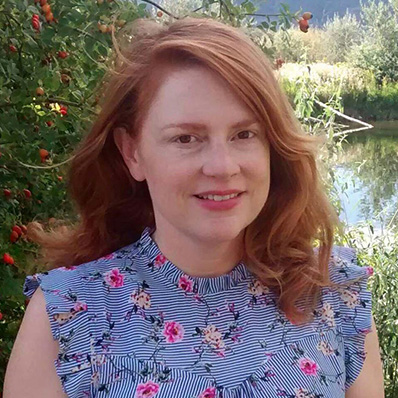 MARGARET CARLYLE Assistant Professor History |
This grant will support the design of a new single-semester upper-level course for History students and non-majors. Delivery methods will focus on experiential learning through hands-on knowledge creation and simulations, leading to tangible outputs beyond the classroom. Course work will focus on an immersive exercise in technology-as-pedagogy, in which students will use the medium of podcast production in order to engage with the central course theme: the history of reproductive technologies. This group work will include hands-on training in podcasting at UBCO’s superbly equipped recording studio, with the resulting episodes going live on UBC’s Podcast Network. In preparation for podcast development, students will have the chance to interview the female inventor of the pregnancy test kit and see the first prototype. Finally, a trip to the Nursing Laboratory to witness simulative medical robotics in action will allow students to learn firsthand about current technological frontiers.
Natalie Forssman and Astrida Neimanis
Anthropology and Gender, Women and Sexuality Studies
(group recipient)
 NATALIE FORSSMAN Assistant Professor of Teaching Anthropology |
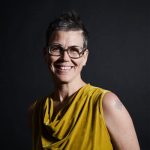 ASTRIDA NEIMANIS Associate Professor English and Cultural Studies; Gender, Women and Sexuality Studies |
Place-based pedagogies are out-of-the-classroom activities that engage students with social and cultural dimensions of local landscapes and communities, and connect cognitive, affective, and ethical learning. These pedagogies emphasize power and privilege in the construction, understanding, and experience of place, and are gaining interest not only in sustainability education, but across the social sciences and humanities. Yet, effective integration requires thoughtful attention to access and inclusion in diverse classrooms, and skillful alignment with course outcomes and assessments. Instructors also require support to mitigate time and logistical challenges, and guidance on how this work can help prepare students for Indigenous-led land-based learning. This CTI Grant will strengthen place-based learning across at least four FASS undergraduate programs, and build educational leadership impact of FASS place-based pedagogy by creating a community of practice, supported via prototyped modular toolkits and an open-access digital platform to share strategies and knowledge with both UBCO and international audiences.
Advancing Democratic Citizenship in an Age of Democratic Backsliding
Department of Economics, Philosophy and Political Science
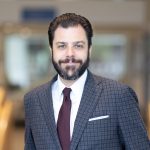 BRAD EPPERLY Assistant Professor Political Science |
 GEOFFREY SIGALET Assistant Professor Political Science |
The Curricular and Teaching Innovation Grant will allow the design of a full-year two-course sequence on the normative and empirical dimensions of democracy during an age of democratic backsliding. The course sequence will teach students how normative ideals concerning legislative deliberation, direct democracy, constitutionalism, etc. connect to empirical challenges such as gridlock, partisanship, polarization, populism, and colonialism. In addition, it will actively engage students in projects and simulations that model these connections from regional, Indigenous, and comparative perspectives.
Designing an interactive and interdisciplinary seminar for Economics, Philosophy and Political Science students
Department of Economics, Philosophy and Political Science
 MADELEINE RANSOM Assistant Professor Philosophy |
 JULIEN PICAULT Associate Professor of Teaching Economics |
This project will support the development of a new collaborative team-taught upper-level interdisciplinary seminar for majors in Philosophy, Politics, and Economics (PPE), International Relations (IR), Economics, Political Science, and Philosophy. This seminar course will become part of the regular course offerings of our department. In addition, it will serve as a model for developing similar collaborative seminars across disciplinary boundaries in the Department of Economics, Philosophy and Political Science. Various delivery methods will be used to create a collaborative work environment where students explore the links between philosophical and economic questions and methodology. The overarching goal is for each student (as a group or individually) to produce a shareable output involving various media of communication in a collaborative space accessible beyond the students of the class.
Public Anthropology: Bringing engagement and advocacy to the classroom
Department of Community, Culture and Global Studies
 DAVID GEARY Associate Professor Anthropology |
 FIONA McDONALD Assistant Professor Anthropology |
How do we foster and build effective pedagogies for teaching about pressing social issues and problems in the early twenty-first century? What is the role of engagement and advocacy in the classroom? Recently, the Anthropology program added ‘ANTH 200 – Public Anthropology: Engagement and Advocacy’ to the academic calendar as a Major/Minor requirement that will be offered every year beginning in 2021-22. This second-year course presents unique experiential and ethical challenges given its emphasis on the application of methods and insights used by anthropologists’ to affect social change, encourage broader public conversation and debate, and respond to inequality, injustice, and human suffering in the contemporary world. This CTI-grant will directly support the design and implementation of a new foundational undergraduate course that seeks to address these issues and provide meaningful pathways for students to engage with matters of public importance and generate ethical projects based on community needs and shared values.
Psychology Curriculum Mapping Project
Department of Psychology
 JAMIE PIERCY Assistant Professor of Teaching Psychology |
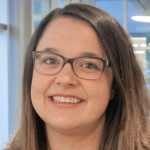 SHIRLEY HUTCHINSON Lecturer Psychology |
 MAYA LIBBEN Associate Professor Psychology |
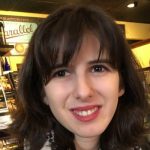 MAYA PILIN PhD Student Psychology |
 JAN CIOE Associate Professor Psychology |
The aim of this project is to design and execute curriculum mapping of the UBCO Psychology program. A curriculum map, or the visualization of elements of the curriculum, will allow for a better understanding of our program’s curricular gaps and provide a framework to revitalize our program to reflect a learning-outcome model. This will allow us to systematically collect data to investigate the learning outcomes and themes of the current program to ensure students are achieving desirable competencies central to a career in psychology in line with our program outcomes. This map would serve as an analytic framework, from which we can design our program’s curriculum to meet key competencies, learning outcomes, and goals. Through an iterative lens, we will begin this investigation from the gold-standard guidelines proposed by the American Psychological Association: knowledge base, scientific inquiry, ethical and social responsibility in a diverse world, communication, and professionalism.
Creating a Platform for Understanding Economics and Political News

JULIEN PICAULT
Associate Professor of Teaching, Economics
Irving K. Barber Faculty of Arts and Social Sciences
In the current era of fake news and alternative facts, students have difficulty navigating the news that is a necessary complement to economics courses. This project proposes the creation of a platform dedicated to selecting, providing, de-jargonizing, contextualizing, decrypting and explaining some current economics and political news to economics students. This platform will provide students with necessary real-life examples of economic concepts, but it will also show students how to make sense of current economics and political news. The platform will be designed to support first-year economics students’ learning, but will potentially be useful for any students curious about the news, thus having a broader social science appeal.
Designing Virtual Labs for Improved Student Engagement and Success

RAMON LAWRENCE
Professor, Computer Science
Irving K. Barber Faculty of Science
Labs are used in scientific fields to provide hands-on, experiential training for students. Traditional labs with scheduled physical space do not reflect the current student priorities of flexibility and on-demand learning. The result is poor student attendance, diminished learning outcomes, and the under-utilization of precious campus space. The goal is to develop a platform for deploying and delivering virtual labs supported by technology that allows students to have the same learning outcomes in a more flexible way. The initial target is computer science courses, specifically the database course, but the approach will be generalizable to other courses. The impact will be increased student engagement while reducing the number of scheduled labs, which will help decrease the demands on teaching assistant resources and physical space.
Creative scientific instrument building for enriched student experience
ROBERT GODIN
Assistant Professor, Chemistry
Irving K. Barber Faculty of Science
ISAAC LI
Assistant Professor, Chemistry
Irving K. Barber Faculty of Science
This project aims to develop the first course in the Irving K. Barber Faculty of Science based on constructivism, an emerging trend in education which focuses on student learning and engagement. The learning occurs as students are actively involved in the process of (physically) constructing knowledge and skills as opposed to passively receiving information in traditional prescribed labs. In teams, students will learn new technical skills and practice problem-solving to make scientific tools and instruments used in their science program. A positive learning experience is fostered by the tangible, hands-on approach which improves learning. This will be an experiential learning course that will foster innovation and creativity and eventually be available to all undergraduate and graduate students as an elective in the Irving K. Barber Faculty of Science.
Course Modernization through Gamification and Peer-Designed Content

First-year students often find introductory computer science challenging, and struggle to succeed. The goals of this project are to use gamification to offer alternative ways for students to earn marks, and to involve students to develop novel examples that are interesting and relevant to their peers in order to make learning more enjoyable.
BOWEN HUI
Instructor, Computer Science
Best Practices in Experiential Learning in Lab-based Learning Environments: Engaging Students with Environmental Science at the 100 Level
 This project aims to explore how typical science “labs” can be designed to be experiential learning opportunities. This will be done in the context of creating a new set of laboratory exercises for a first-year environmental science course.
This project aims to explore how typical science “labs” can be designed to be experiential learning opportunities. This will be done in the context of creating a new set of laboratory exercises for a first-year environmental science course.
CRAIG NICHOL
Senior Instructor, Earth, Environmental & Geographic Sciences
 STUART MACKINNON
STUART MACKINNON
Laboratory Manager, PhD candidate, Earth, Environmental & Geographic Sciences
Practices of Debate and Dialogue: Building Argumentation Skills Through Experiential Learning (PHIL 2xx Science, Technology and Society)
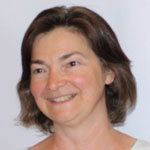 This project involves creating a new course that teaches philosophical concepts via experiential learning methodologies, such as games, plays, and other interactive approaches that have not been traditionally used in such courses. The idea is to promote imagination, inquiry, and engagement as foundational features of teaching topics at the intersection between history and philosophy of science and social and political philosophy.
This project involves creating a new course that teaches philosophical concepts via experiential learning methodologies, such as games, plays, and other interactive approaches that have not been traditionally used in such courses. The idea is to promote imagination, inquiry, and engagement as foundational features of teaching topics at the intersection between history and philosophy of science and social and political philosophy.
MANUELA L. UNGUREANU
Associate Professor, Economics, Philosophy & Political Science
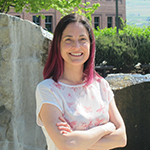 Scaffolding Mastery in First Year Chemistry Laboratories
Scaffolding Mastery in First Year Chemistry Laboratories
The goal of this project is to redesign the first-year chemistry laboratory curriculum to provide students with experiential learning activities that reinforce the practical application of their chemical knowledge. Dr. Freeman will incorporate strategic learning objectives that will draw on contextually relevant lecture material, emphasize the scientific process over chemical outcome, and provide greater opportunity for group work and collaboration.
TAMARA FREEMAN
Instructor, Chemistry
 Improving Student Engagement and Learning in an Introductory Programming Course using Flipped Classrooms
Improving Student Engagement and Learning in an Introductory Programming Course using Flipped Classrooms
First-year students usually find it difficult to learn programming and develop the relevant problem-solving skills. This may lead to high failure and attrition rates. The aim of this project is to implement the flipped-classroom model and problem-based learning supported by an online code visualization app in a first-year programming course. The Curricular Innovation Award will be used to assist the development of a learner-centred environment where students will not only learn algorithmic thinking and programming concepts but they will also develop lifelong skills including critical thinking, creativity, and teamwork.
ABDALLAH MOHAMED
Instructor, Computer Science
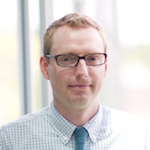 A Hybrid Approach to Team-Based Learning, Open Science, and Professional Presentations
A Hybrid Approach to Team-Based Learning, Open Science, and Professional Presentations
The goal os this project is to sustainably redesign a key course in the psychology curriculum: Introduction to Research Methods and Design (PSYO 270). This required course for all psychology majors is of strategic importance and offers the potential for numerous downstream benefits as students progress into their upper-level psychology coursework. Introduction to Research Methods and Design (i.e., Research Methods) has traditionally been taught as a large lecture course with enrolments of 200-250 students. After joining the UBC faculty in January 2016, Dr. Wirtz was offered the opportunity to teach the course and decided to pilot test several structural changes to evaluate the feasibility of a full and sustained course redesign.
DERRICK WIRTZ
Senior Instructor, Psychology
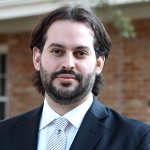 Economics and the Media
Economics and the Media
The primary objective is to create a course in which students will be trained to produce high-quality economic news articles which may be published in local media. Through Dr. Picault’s discussion with KelownaNow’s editors, it was agreed that articles which meet their standards would be published on their website. This represents a unique opportunity for students to apply their economics skills and knowledge while providing valuable information to the local community of Kelowna.
JULIEN PICAULT
Instructor, Economics
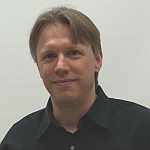 Confronting Misconceptions Through Experiential Learning in First Year Physics
Confronting Misconceptions Through Experiential Learning in First Year Physics
The goal of this project is to provide a natural venue in which students can confront and revise the myriad misconceptions that beginning students hold regarding the core concepts of first year physics. Students learn physics by doing it, rather than listening to it. Dr. Hopkinson will use this award to develop interactive opportunities for students to use technology to confront misconceptions through workshops and group problem solving sessions.
JOHN HOPKINSON
instructor, Physics
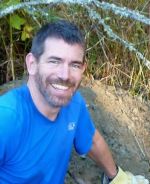 Enhancing Statistical Literacy and Infusing Statistical Best Practices Throughout Biology Curriculum
Enhancing Statistical Literacy and Infusing Statistical Best Practices Throughout Biology Curriculum
The primary objective is to improve statistical literacy among graduates of the undergraduate Biology program. The secondary objective is to broaden the marketable skill set of Biology students by training them in the use of “RStudio,” a free, open-source software environment for statistical computing and graphics that is rapidly becoming the global standard in both the private and public sector.
JASON PITHER
Associate Professor, Biology & Physical Geography
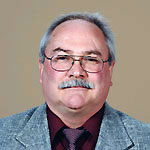 A Proposal to Create a UBCO Heritage Management Certificate
A Proposal to Create a UBCO Heritage Management Certificate
Dr. Garvin’s objective is to create a flexible, interdisciplinary Heritage Management Certificate with a new innovative, hands-on internship course or archeological field school option worth 12 credits. The internship will involve working with an institution on a project related to Heritage Management while the field school would require a minimum of 12 credits in archaeology field courses from a variety of archaeological field schools. The Award will be used to consult with potential internship/archeological field school community partners and institutions, develop the new course and shepherd the program through the curriculum committees and Senate. Evaluations of the program are planned with the participating institutions/community partners and the students after completion of the internship or field school and after completion of the HMC program by each student. Graduated students will also be tracked to determine their success in finding employment in a field related to heritage management or to continuing their education further.
RICHARD GARVIN
Associate Professor, Anthropology
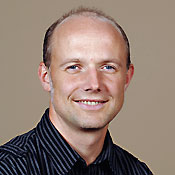 Using the ‘Flipped Classroom’ approach to allow experiential learning in a 4th year capstone biochemistry course
Using the ‘Flipped Classroom’ approach to allow experiential learning in a 4th year capstone biochemistry course
Dr. Klegeris will shift the focus in the instruction of the 4th year biochemistry capstone course BIOC 407 from a content-centred to a learner-centred approach which will allow students to develop real-life skills including team-work, problem-solving, critical-thinking, peer-evaluation and metacognitive skills. He will make the students responsible for learning the course content independently to free up time for experiential learning and development of practical skills. This will be accomplished by developing six course content packages for independent study, developing questions for quizzes and examinations to accompany each course content package, developing a rubric for objective peer evaluation of student presentations, designing questions for metacognitive exercises and an online tool for administering and monitoring these questionnaires and redesigning existing Problem Based Learning cases for the course. Dr. Klegeris will monitor student satisfaction with the new course delivery and will write up the results for publication as well as presenting at local and international meetings.
ANDIS KLEGERIS
Associate Professor, Pharmacology
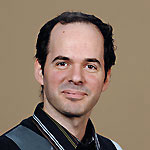 Improving team-based learning in a data structure course
Improving team-based learning in a data structure course
Dr. Lucet first introduced team-based learning in COSC 222: Introduction to Data structure in 2014, but noted several gaps that need to be addressed. He will use the Curriculum Innovation Award to create a blended flexible on-demand learning environment in the course that is customized to student learning needs and delivered in a group-based setting. He will develop videos to explain key data structures in the course, quizzes to assess student understanding, implement fully open-source codes making online animations that illustrate data structures readily available to students, generate self-evaluation quizzes for iClicker and Connect and use learning analytics to detect students at risk of failing the course and provide customized support. He will present his results at local and international computing education conferences.
YVES LUCET
Associate Professor, Computer Science
 Low Temperature Physics: Theory and Practice
Low Temperature Physics: Theory and Practice
The objective of this proposal is to develop a new and innovative course in low-temperature physics to be offered as an upper-level elective for physics majors. This course will address the lack of breadth in upper level Physics. It will also provide innovative hands-on and research-based activities allowing skills development that is rarely offered to students at an undergraduate level. Dr. Bobowski will augment class lectures with peer presentations and written reports that will be assessed using a peer review system that mimics the review process used by refereed journals. Plans for quantitative analysis of the value of this student peer review process are being discussed with the Centre for Teaching and Learning
JAKE BOBOWSKI
Instructor, Physics
 Interactive Brain Dissection Laboratory
Interactive Brain Dissection Laboratory
The objective of this project is the development of a modular interactive human brain dissection laboratory using videos and still photographs coupled with interactive exercises online to teach neuroanatomy. Dr. Mathieson will work with a consultant knowledgeable in Flash or HTML5 programming to design overlay text windows that will describe highlighted areas of the brain, allowing the student to answer questions about the structures. The modules are designed specifically for Biology courses taught by Dr. Mathieson, but will be made available to other instructors in Psychology and Human Kinetics and the laboratory will be presented at an Improving University Teaching Conference to be held in Vancouver in July 2014. Student learning will be via monitoring student performance on midterm tests and special lab quizzes.
BRUCE MATHIESON
Associate Professor, Biology
 Creative Learning Concurrent Programming
Creative Learning Concurrent Programming
Dr. Lucet will use a tool to allow students to creatively solve concurrent programming challenges. The tool will automatically check the validity of algorithms that run several parallel codes, and will determine whether the algorithm is correct. If it is not, the tool will provide feedback on the type of error and give an example of sequential code execution that gives the wrong output. Using the tool, students will be able to understand their mistake, improve their solution, and propose another solution that fixes the error.
YVES LUCET
Associate Professor, Computer Science
 Games in History
Games in History
Dr. Nilson’s Games in History project will develop historical situation games for use in the classroom. The games require students to take on the role of historical figures and run classroom sessions. The project is based on Reacting to the Past – a series initiated by Barnard College. Dr. Nilson has successfully adapted other historical games for his classroom which increased student participation and engagement and greatly enhanced learning.
BEN NILSON
Associate Professor, History
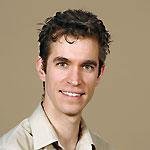 Deliberate Practice in Physics
Deliberate Practice in Physics
Dr. Rosolowsky is partnering with the Carl Weiman Science Education Initiative (CWSEI) at the Vancouver Campus to revise Calculus-Based Physics. The revision will bring modern, inquiry-based learning methods to the lecture and laboratory portions of the course. Under the new structure, lecture time will be primarily small group learning activities, with content learned through readings and online content reviewed before class. Laboratory time is being restructured to focus on the process of science rather than the particulars of Newtonian mechanics. Preliminary work in CWSEI studies shows these changes will result in a deeper understanding of the material, increased student engagement and enhanced abstract reasoning skills.
ERIK ROSOLOWSKY
Assistant Professor, Physics
 Digital Media and the Humanities, Phase II
Digital Media and the Humanities, Phase II
In the second phase of her Digital Media and Humanities project, Dr. Stites Mor continues to develop digital infrastructure and course programing that will enable students to participate in digital media production across the humanities disciplines and to give them access to technology necessary to create student-centred digital humanities projects.
JESSICA STITES MOR
Assistant Professor, History
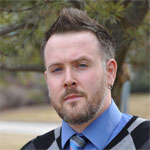 Public Sociology Colloquium
Public Sociology Colloquium
In our time, there are a myriad of ways to obtain information, but accessing information and understanding important social issues can be challenging. Dr. Christopher Schneider is bridging the gap between the academic and public sphere through the creation of an undergraduate course that brings together sociologists, students and members of the public to raise awareness and discuss important contemporary social issues.
CHRISTOPHER SCHNEIDER
Assistant Professor, Sociology
 Digital Media and the Humanities
Digital Media and the Humanities
As a cultural historian, Dr. Stites Mor tries to expose her students to a wide variety of audio and visual materials to add experiential depth to their learning. Through the Digital Media and the Humanities Pilot Project, Dr. Stites Mor is developing the infrastructure and course programming that will enable students to integrate digital media production into their humanities education. She has also created a new course entitled “Digital Media and History” that teaches students about the role of digital media in pushing the limits of historical research and communication and gives them a hands-on introduction to the creative practice of documentary filmmaking.
JESSICA STITES MOR
Assistant Professor, History
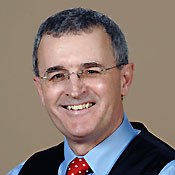 Interaction with Legal Professionals
Interaction with Legal Professionals
Dr. Carl Hodge’s lecture-seminar course Contemporary Issues in Law introduces students to the practice of law through interaction with working legal professionals like notable guests Chief Justice Beverley McLachlan and former Puisne Justice Frank Iacobucci of the Supreme Court of Canada. The course challenges students to reconsider their preconceptions of justice by confronting real-world legal cases and discovering how they might contribute to the Canadian legal profession.
CARL HODGE
Professor, Political Science
 Preparing Students for Realistic Workplace Challenges
Preparing Students for Realistic Workplace Challenges
Dr. Andis Klegeris’ problem-based learning exercises will enable biochemistry students to study real-life situations and learn how to identify problems, research available information and discover possible solutions. This learning approach prepares students for the realistic workplace challenges they will face on a daily basis after graduating from university.
ANDIS KLEGARIS
Assistant Professor, Pharmacology
 Embedded Devices to Increase Group Communication
Embedded Devices to Increase Group Communication
Dr. Patricia Lasserre is systematically testing whether student use of an embedded device can reduce the limitations of group communication during team-based learning exercises. She predicts that the student’s ability to view all team members’ input simultaneously and to have equal opportunity to actively engage in problem solving will increase interaction and participation in her first year computer programming course.
PATRICIA LESSERRE
Associate Professor, Computer Science
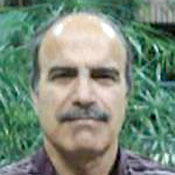 Promoting Cross-Cultural Communication
Promoting Cross-Cultural Communication
Dr. Javad Tavakoli’s foundational mathematics course promotes cross-cultural communication between Aboriginal thought and traditional European mathematical training. He is developing course resources to integrate traditional analysis-synthesis learning techniques common to many Aboriginal cultures and to emphasize the relationship between different mathematical concepts and an integrated knowledge of mathematics.
JAVAD TAVAKOLI
Associate Professor, Mathematics
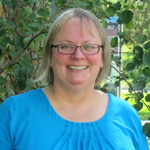 Creating Informed Voters
Creating Informed Voters
What is one of the most important responsibilities students will face in the future? Dr. Kavanagh’s answer would be to vote and she insists that students may be required to contemplate increasingly complex scientific issues when making electoral decisions. She incorporated problem-based learning techniques into her Introduction to Physical Geography course to provide both arts and science undergraduates with a clear understanding of the process of scientific inquiry.
TRUDY KAVANAGH
Assistant Professor, Geography
 Team-based Learning Provides Essential Confidence
Team-based Learning Provides Essential Confidence
First year computer programming courses often have high attrition rates as many students find it a challenge to understand programming concepts and to produce creative solutions to problems. Dr. Lasserre found that a large amount of practice is necessary to develop the problem-solving skills and logical reasoning required to be successful in the course. She integrated team-based learning into the classroom to provide her students with the essential confidence and practice they need.
PATRICIA LESSERRE
Associate Professor, Computer Science
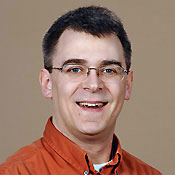 3D Displays Replace Rote Memorization
3D Displays Replace Rote Memorization
Dr. McNeil has developed a new, user-friendly computer program, permitting the interactive visualization and examination of molecular and protein structure. In guided inquiry assignments, students use this program explore such structures for themselves, thereby crafting their own understanding of protein structure/function relationships, rather than memorizing textbook explanations and static images. Students also have the opportunity to create their own custom-built 3D representations for use in presentations and web pages, in which they present and discuss their conclusions with other students.
STEPHEN MCNEIL
Assistant Professor, Chemistry

